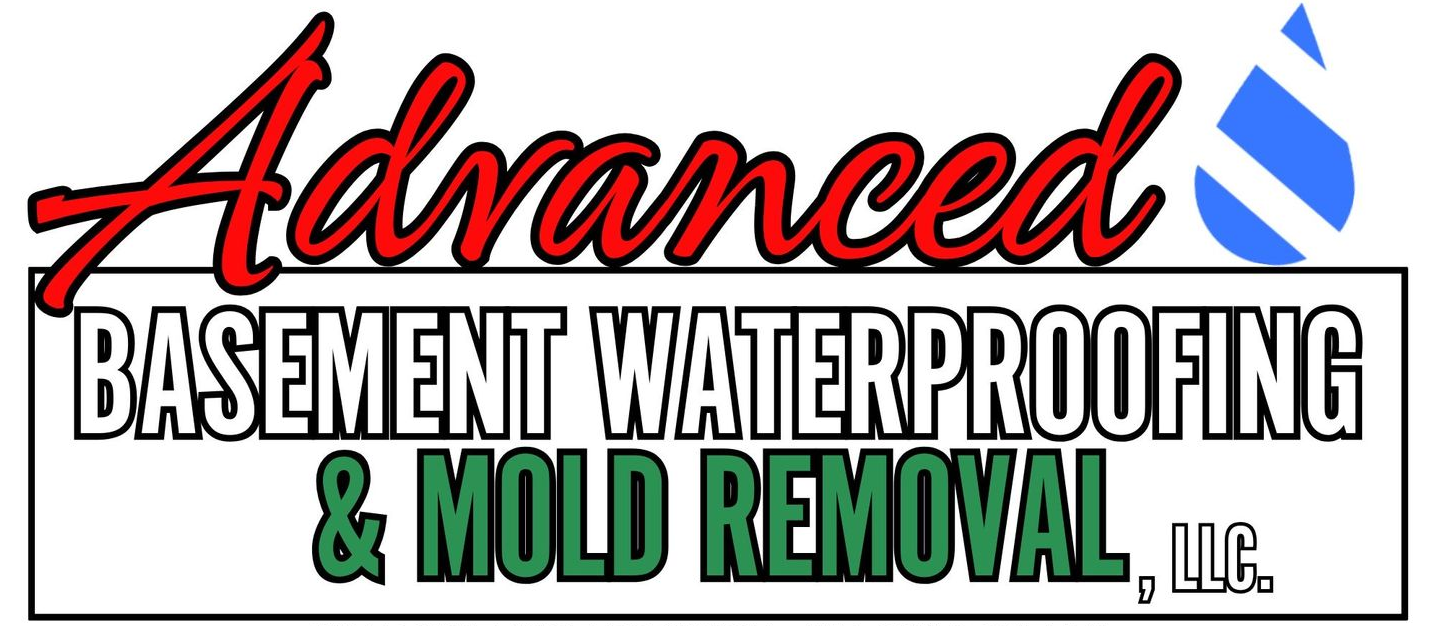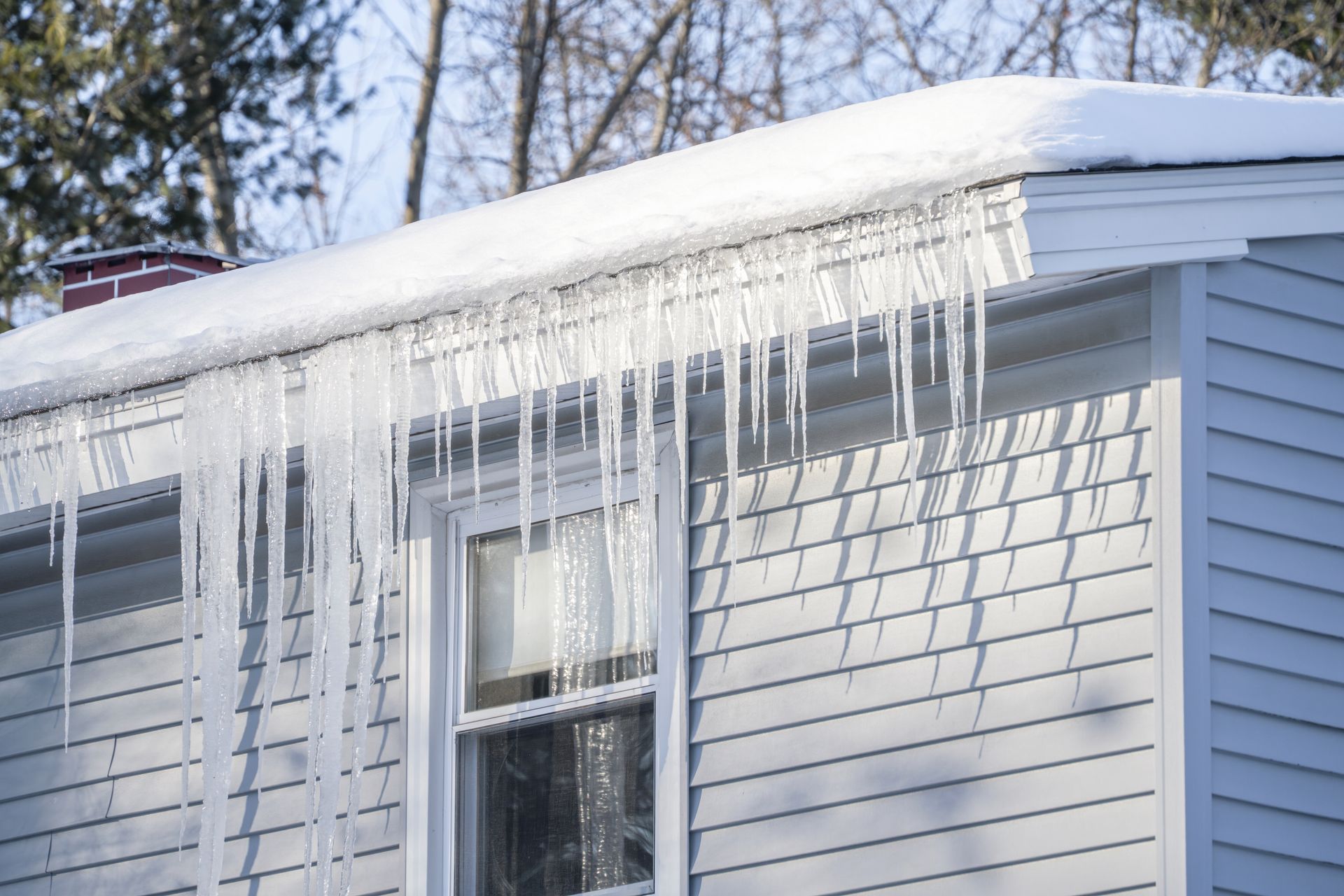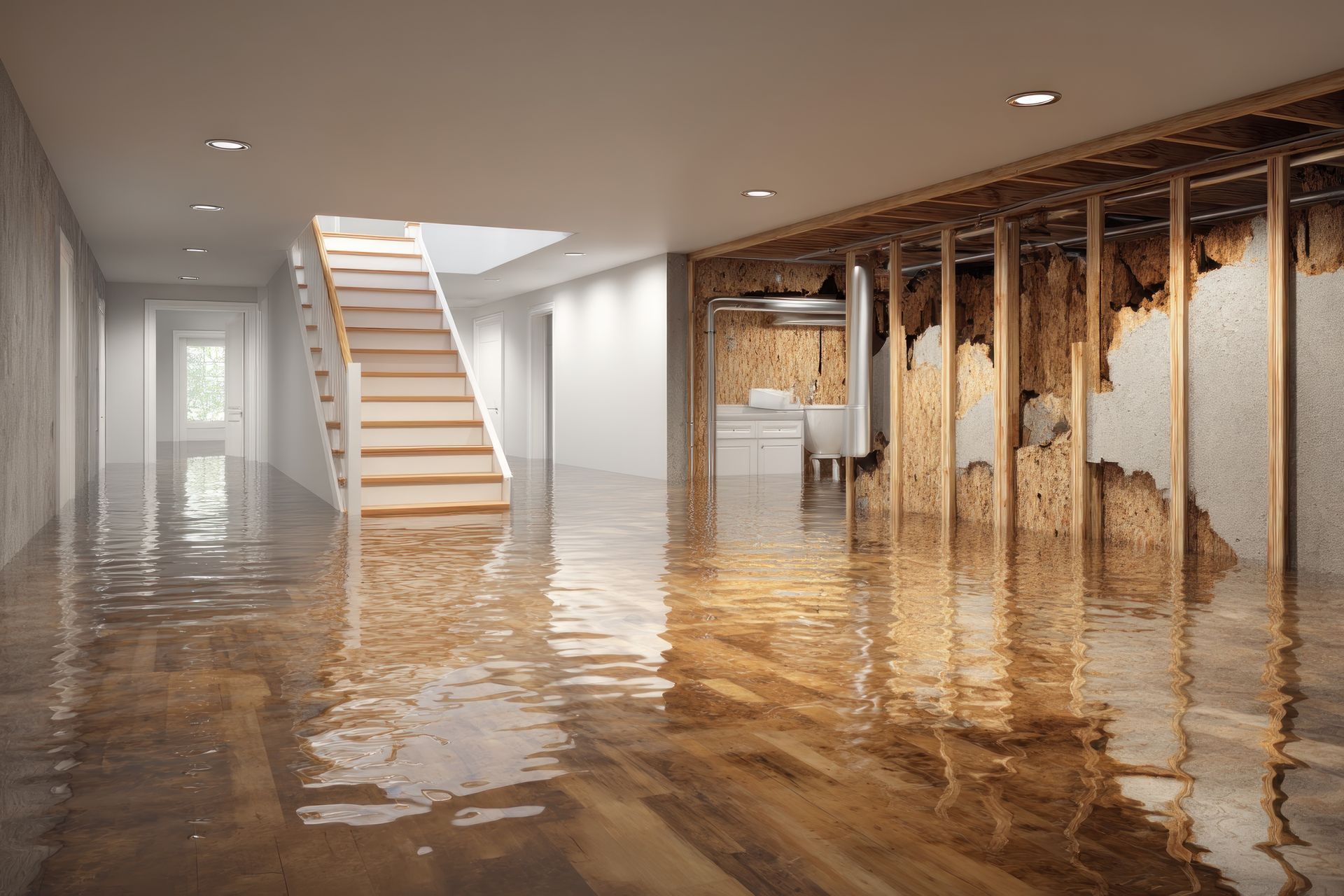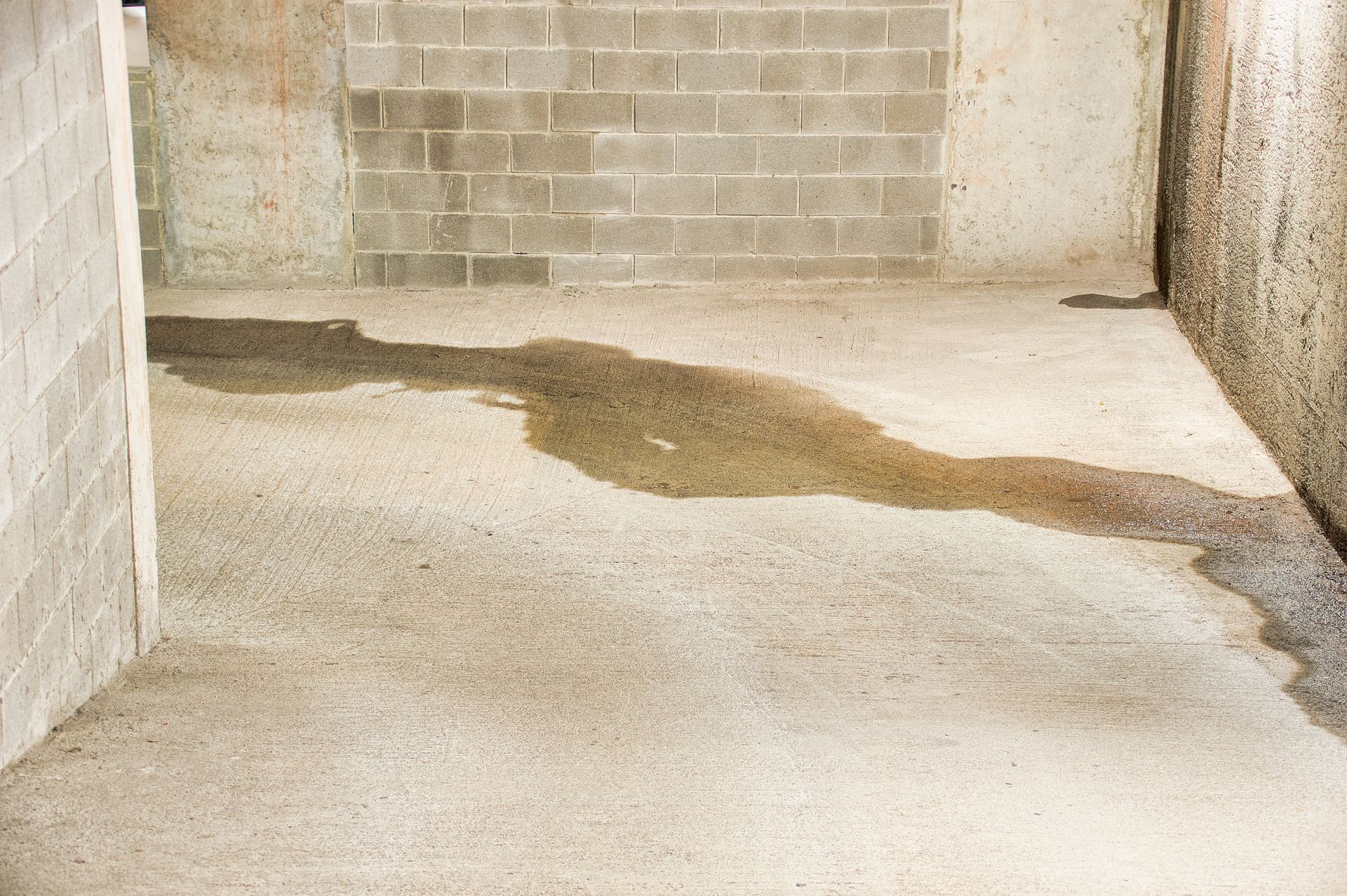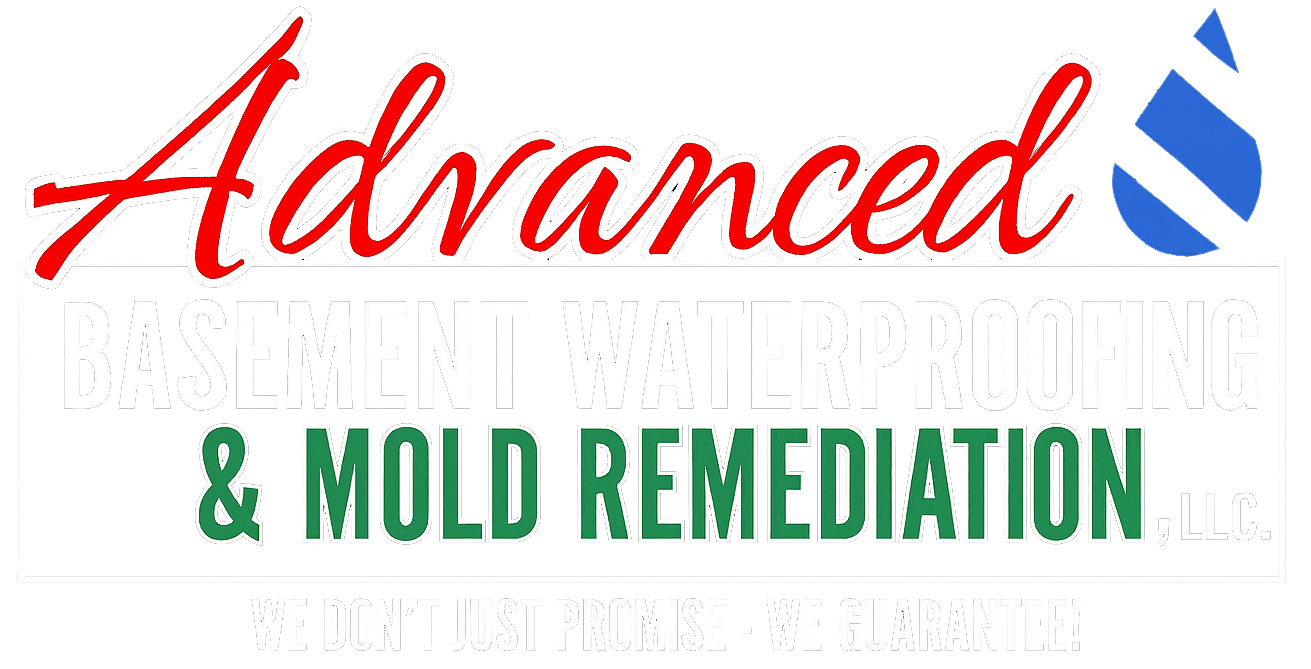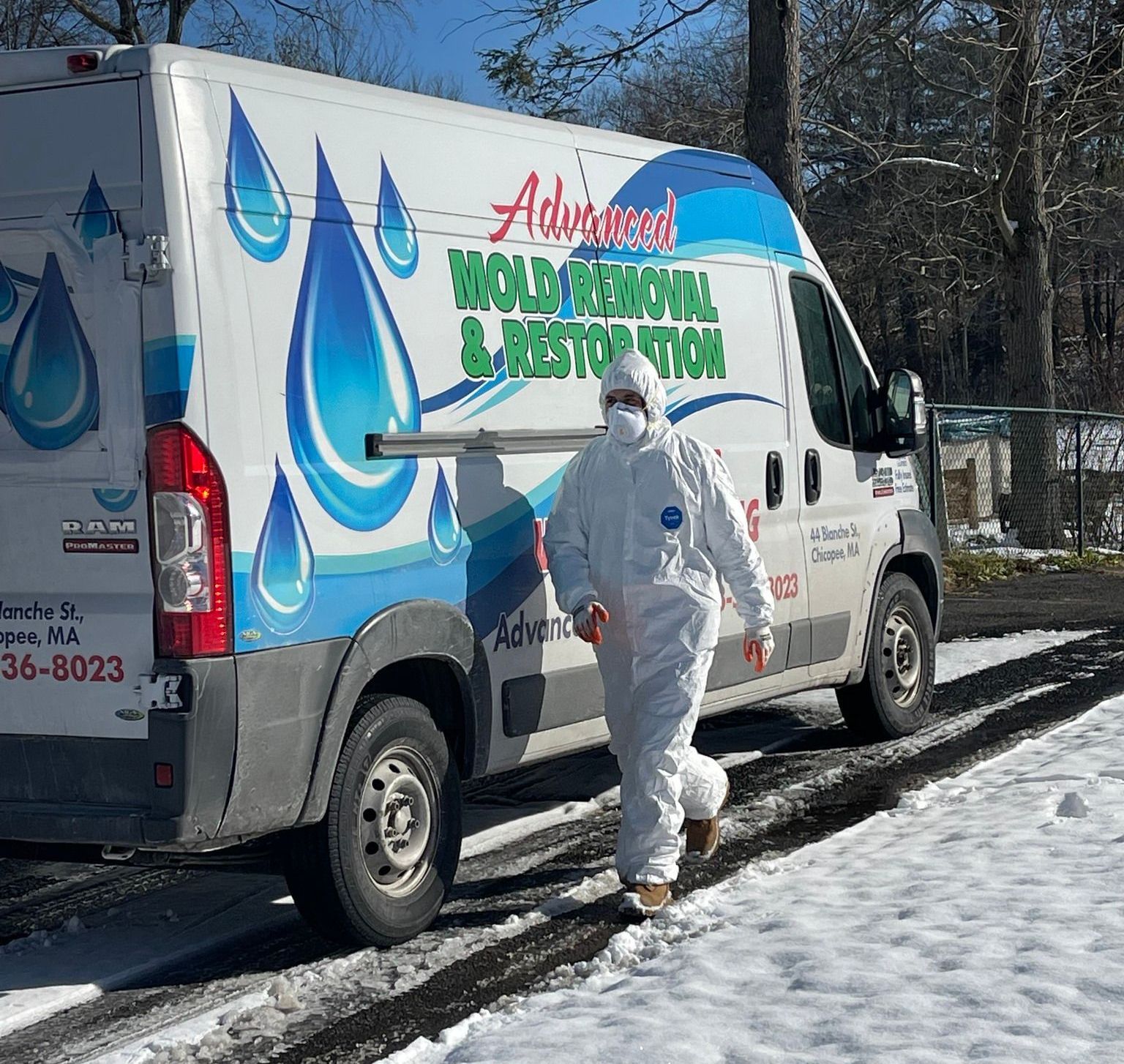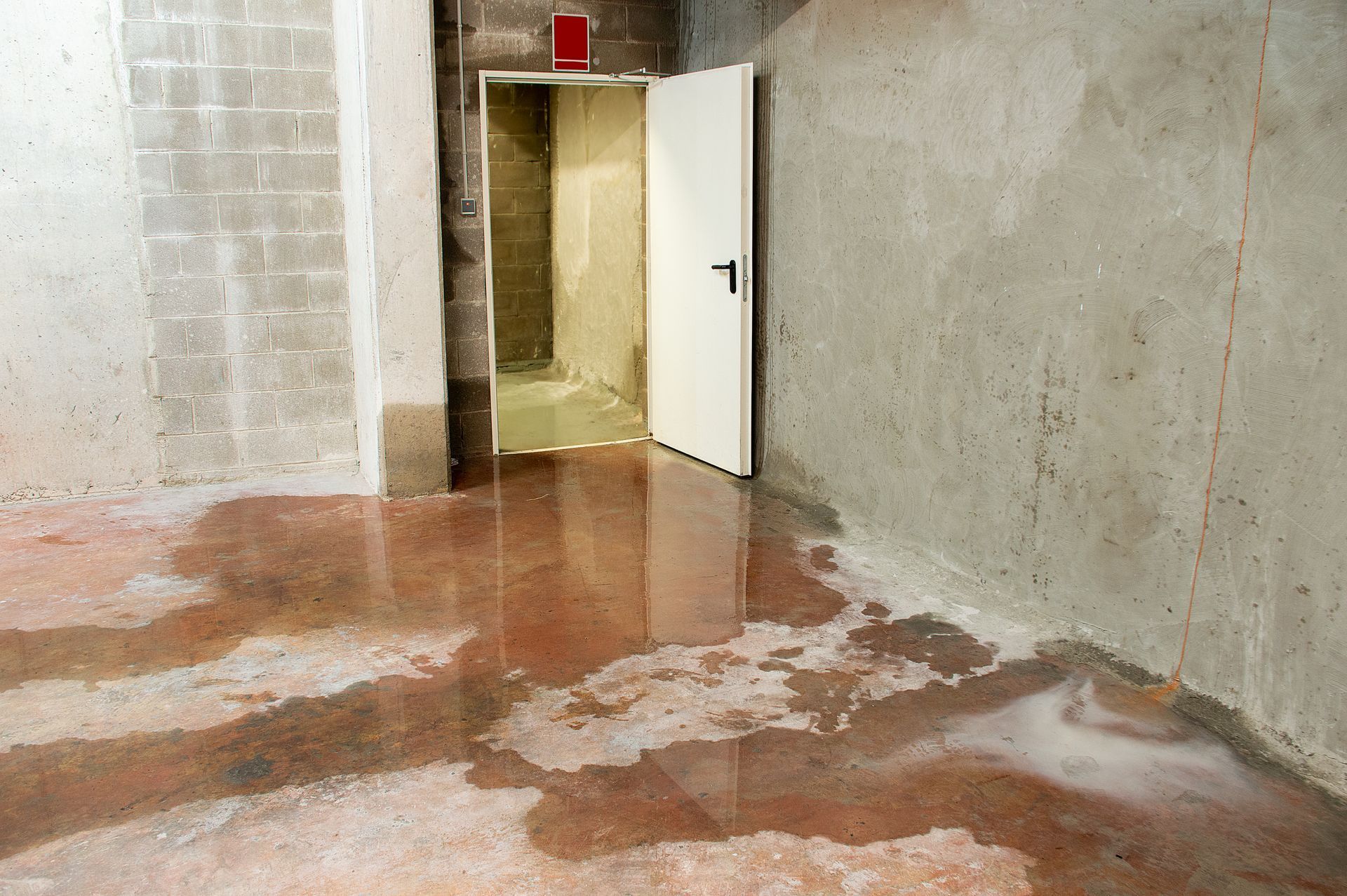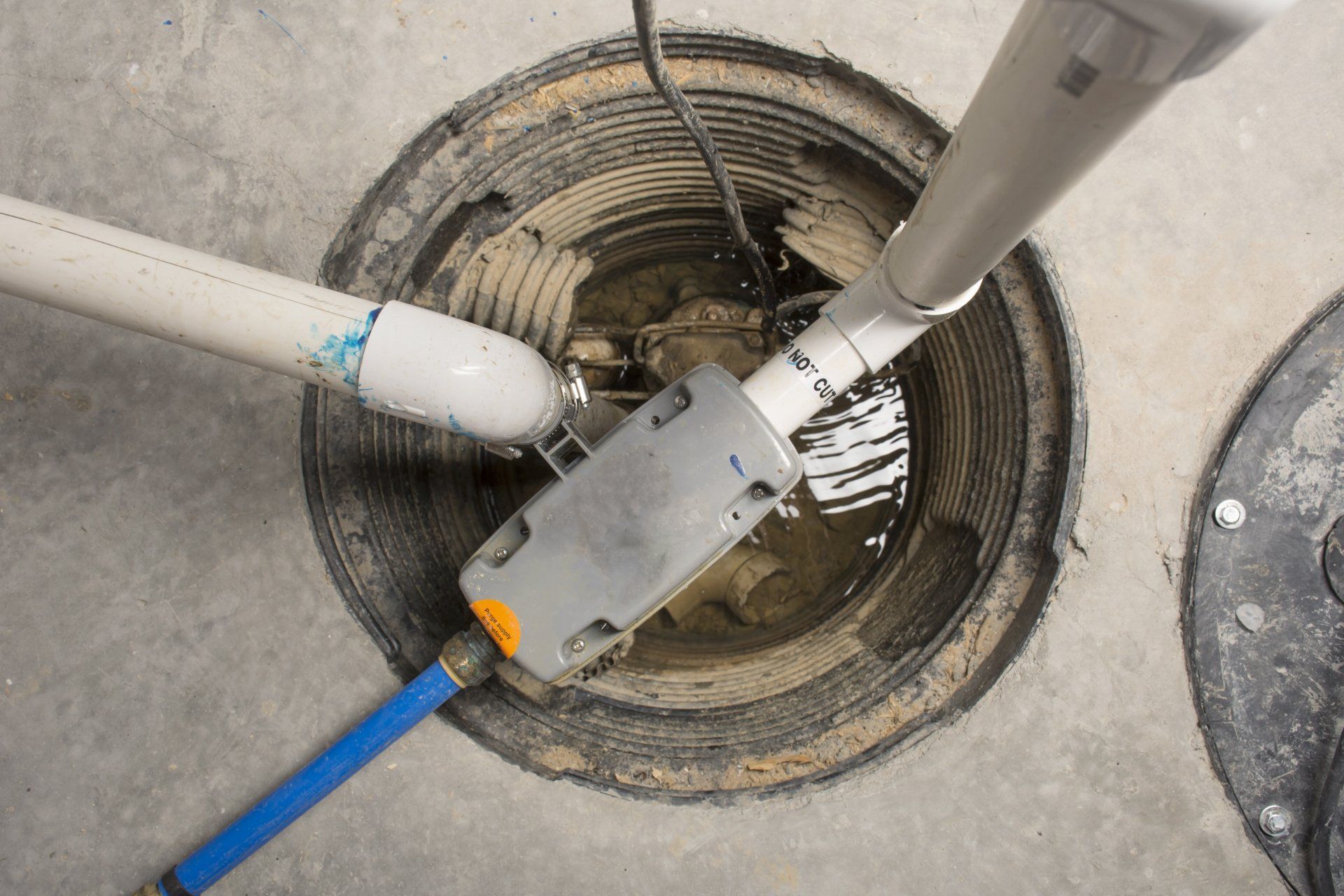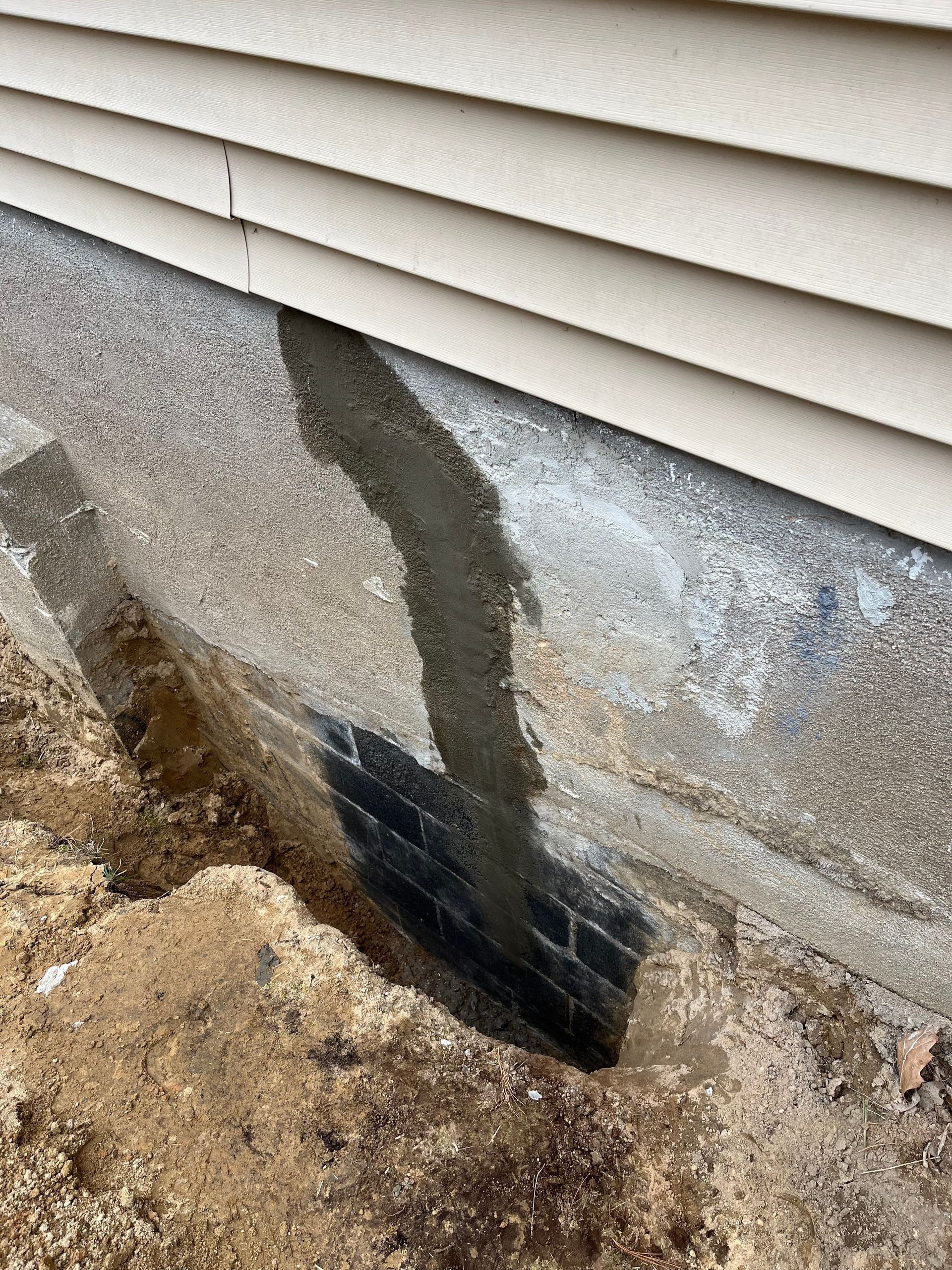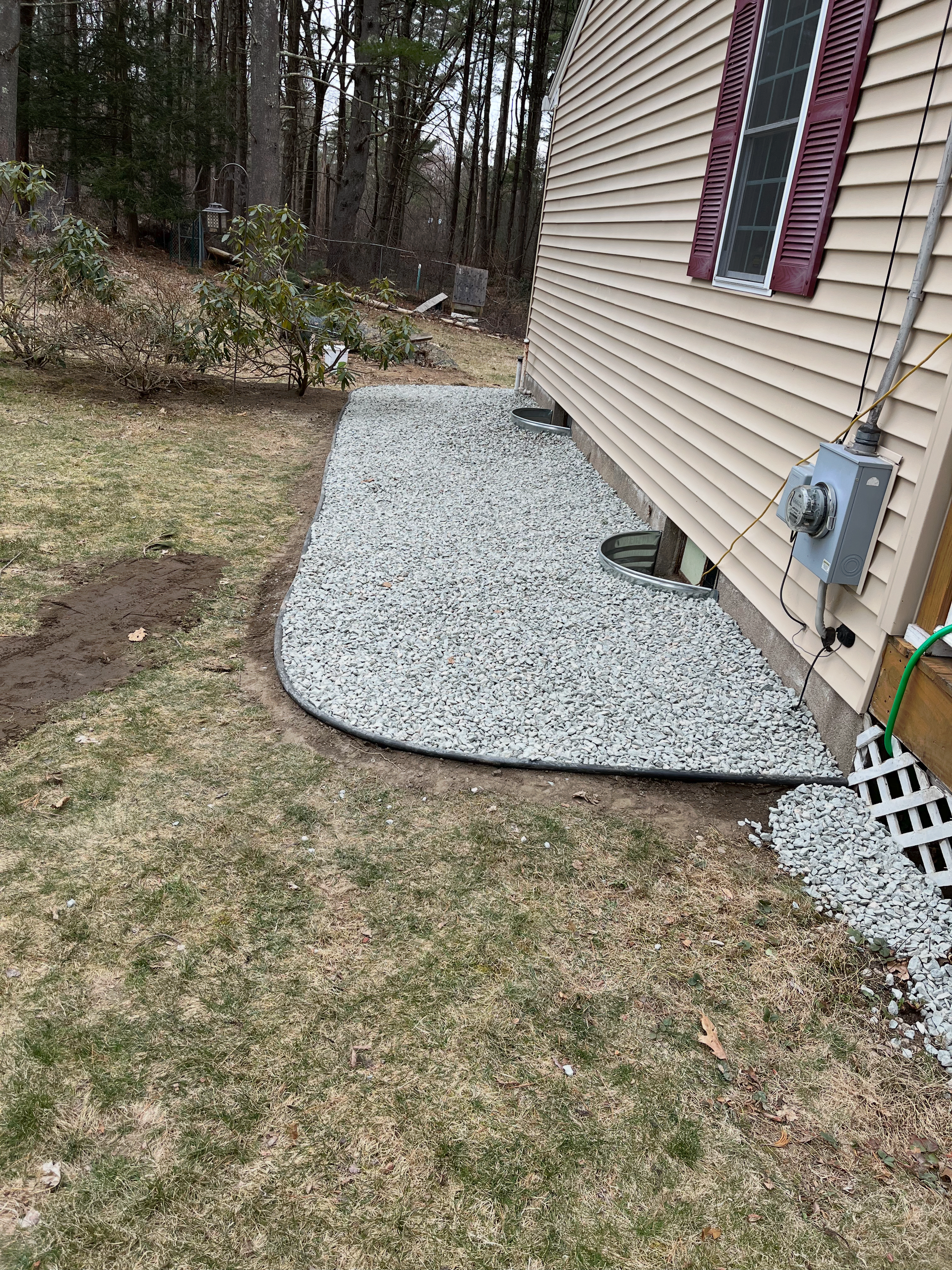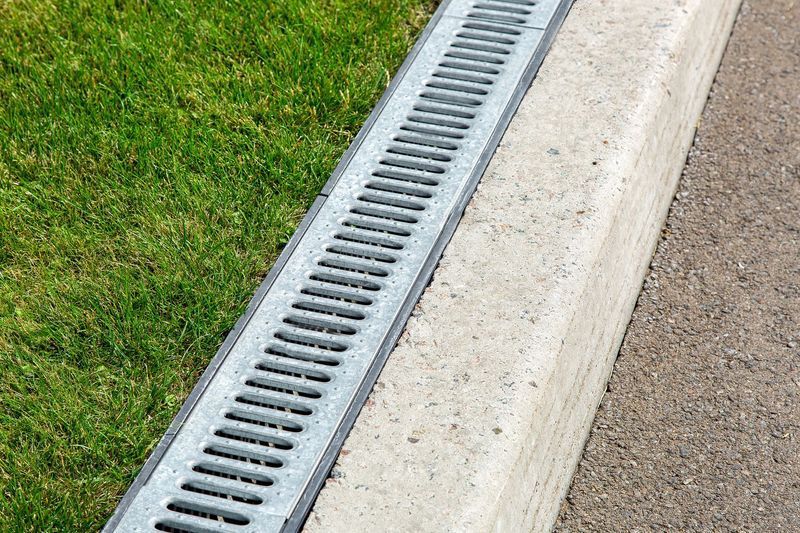Basement Leaks: Don't Overlook Your Clogged Gutters
By Advanced Basement Waterproofing • June 27, 2025
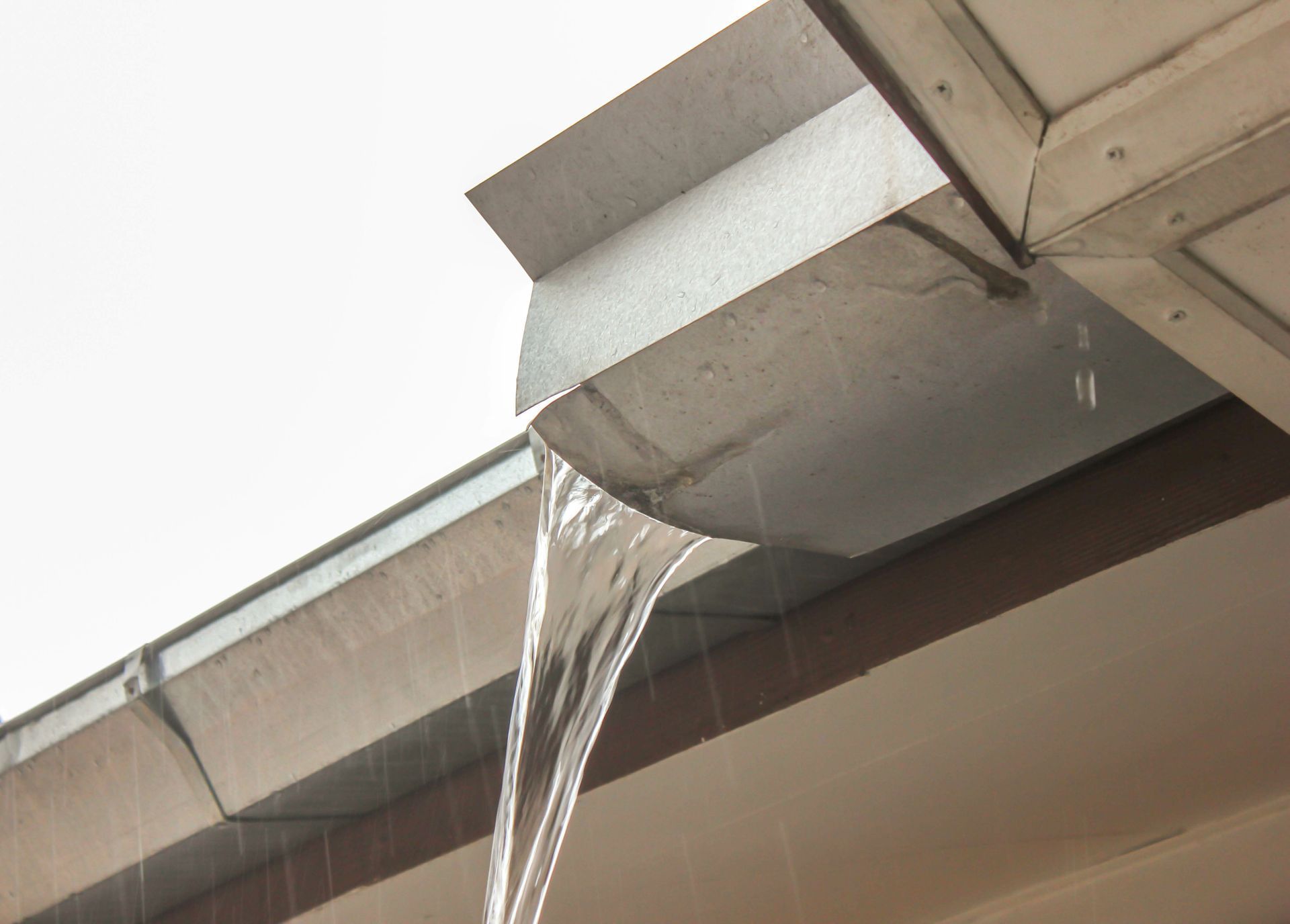
Homeowners often overlook the significance of gutters, but these unsung heroes play a vital role in preventing basement leaks. Functional gutters direct the flow of rainwater away from the house, thus protecting its foundation, basement, and other structural components. When gutters become clogged with leaves, twigs, and other debris, their water-carrying capacity is compromised, leading to overflows especially during heavy downpours.
The overflowed water, instead of being safely directed away, can pool around the foundation, seeping into the basement and causing leaks. This can lead to a host of complications, including mold growth, structural damage, and expensive repairs.
The Connection Between Gutters and Basement Leaks

The relationship between gutters and basement leaks is more significant than many homeowners realize. Here's how this connection works and why it's essential to maintain your gutters properly to prevent basement leaks:
- Water Diversion Role of Gutters: Gutters are designed to divert rainwater away from your home’s foundation. When they function correctly, gutters collect the water that runs off your roof and channel it into downspouts, which then direct the water away from the foundation of your home.
- Clogged Gutters Lead to Overflow: When gutters become clogged with leaves, twigs, and debris, they can’t efficiently move water away from the roof. The water overflows the gutter and spills down the side of the house, accumulating near the foundation.
- Foundation Soaking: The water that pools around your foundation can start to soak into the ground. Over time, this constant moisture can weaken the foundation, making it more susceptible to cracking and leaks.
- Increased Hydrostatic Pressure: The hydrostatic pressure exerted by water accumulating around the foundation is a major consequence of ineffective gutter systems. As water from overflowing gutters pools around the foundation, it increases the pressure on basement walls. This pressure can lead to the formation of cracks, especially in older or already weakened foundations. These cracks become direct channels for water to enter the basement, resulting in leaks. Over time, the repeated cycle of water accumulation and pressure can widen existing cracks and create new ones, escalating the problem of water intrusion into the basement. Regular maintenance of gutters and proper water diversion strategies are essential to prevent this destructive cycle.
- Erosion of Foundation Soil: Improperly functioning gutters can lead to soil erosion around the foundation of a house. When water overflows from clogged gutters, it strikes the ground with force, disturbing the soil that supports the foundation. This erosion process can compromise the stability of the foundation, creating an uneven base that may lead to settling and cracks. The eroded soil also creates pathways for water to flow more easily towards the foundation, increasing the risk of water seeping into the basement. In extreme cases, significant soil erosion can even affect the overall structural integrity of the building.
- Ice Dams in Cold Climates: In colder climates, such as Connecticut, clogged gutters can contribute to the formation of ice dams on the roof. These dams can cause water to back up under roof shingles and eventually into the house, contributing to basement moisture problems as well.
- Indirect Damage: In addition to direct water intrusion, the dampness caused by poor gutter maintenance can lead to higher humidity levels in your basement. This elevated humidity can contribute to mold and mildew growth, further compromising your home’s indoor air quality and structural integrity.
Steps to Prevent Gutter-Related Issues
Preventing gutter-related issues is crucial for protecting your home from water damage, especially in areas prone to heavy rainfall or seasonal changes. Preventative care is worth the extra effort and it can save your 10's of 1,000's of dollars in water damage down the road. For homeowners in Western Mass and Northern Connecticut looking to waterproof their basement, these preventative gutter steps are worth following:
Regular Gutter Cleaning
The cornerstone of preventing gutter-related issues is regular cleaning. This means diligently clearing out leaves, twigs, and other debris at least twice a year, ideally in the spring and fall. If your home is surrounded by trees, more frequent cleaning may be necessary. Cleaning also involves checking and clearing downspouts, as a clogged downspout can be just as problematic as a clogged gutter. While cleaning, be mindful of ladder safety and consider using appropriate tools like a gutter scoop and gloves.
Installation of Gutter Guards
Gutter guards are an effective solution to reduce the accumulation of debris. Various types, such as mesh, bottle brush, and foam guards, are available to cater to different environmental conditions. These guards keep most debris out of the gutters, significantly cutting down on the need for frequent cleaning. They are an investment in the longevity and functionality of your gutter system. Gutter companies like Advanced Seamless Gutters in Chicopee have decades of experience and can help install the proper gutter guard for your home.
Ensuring Proper Gutter Slope
An often-overlooked aspect of gutter maintenance is ensuring they are correctly sloped. Gutters need a slight angle to direct water toward the downspouts, preventing pooling. Regular checks are important to ensure that gutters have not sagged or shifted, which can disrupt the flow of water and lead to backups and overflows.
Inspection and Repair of Gutters
Regular inspections of your gutter system can reveal early signs of wear, such as rust, cracks, or separations at the joints. Addressing these issues promptly can prevent them from escalating into more significant problems. After severe weather conditions, it's especially important to check for and repair any damage.
Extending Downspouts
Proper downspout extension is vital for directing water away from the foundation of the house. Downspouts should extend at least five feet away and ideally direct water towards a drainage system or well-drained area. This helps in minimizing water pooling around the foundation, which is a primary cause of basement leaks.
Considering Professional Gutter Maintenance
For thorough cleaning and expert assessment, professional gutter maintenance is often beneficial. Professionals can spot issues that may not be apparent and can perform necessary repairs or adjustments. For homes in areas with heavy foliage or complex gutter systems, setting up a regular maintenance schedule with a professional service is a prudent step.
Immediate Actions for Leaking Basements Due to Failing Gutters
If you notice that your leaking basement is a result of failing gutters, taking prompt and effective actions is crucial to mitigate damage and prevent future occurrences. Here’s what you should do:
- Identify and Address the Immediate Cause:
Begin by inspecting your gutters for clogs, debris, or damage that might be causing the overflow or improper drainage. Clean out any blockages you find and make temporary repairs to damaged sections if necessary. This immediate response can help reduce further water influx into your basement. - Assess and Manage Basement Water Intrusion:
In your basement, start by removing any standing water using a wet-dry vacuum, pump, or mopping up. Be sure to disconnect any electrical power in the affected area for safety. Move any damp items to a dry, well-ventilated area to prevent mold and mildew growth. - Inspect for and Seal Visible Cracks:
Check the interior walls of your basement for cracks or openings where water might be entering. Use appropriate sealants to close these gaps. While this is a temporary solution, it can help reduce water entry until a more permanent fix is applied. - Contact Professionals:
For comprehensive gutter repair or replacement, it’s advisable to call in professional gutter services. They can assess the extent of gutter damage and recommend the best course of action. Additionally, consider hiring a waterproofing expert to thoroughly assess your basement and implement long-term solutions to water leakage. - Implement Preventative Measures:
Once the immediate issues are addressed, consider preventive measures such as regular gutter cleaning, installing gutter guards, ensuring proper landscape drainage, and routinely inspecting your foundation for signs of damage or weakness. - Review and Improve Drainage Systems:
Examine the grading around your house. The ground should slope away from your foundation to aid in proper drainage. You may also need to extend downspouts further away from the foundation or invest in a more efficient drainage system. - Monitor Humidity Levels:
After addressing the leaks, keep an eye on the humidity levels in your basement. High humidity can contribute to mold and mildew growth. Use dehumidifiers if necessary to maintain a dry environment.
Regular Maintenance Schedule:
Set up a regular maintenance schedule for your gutters and downspouts. This routine check can help identify and address issues before they lead to serious problems, like basement leaks.
Protect Your Home Against Water Damage
If you are experiencing basement leaks or suspect your gutters are failing, taking immediate action by calling the team at Advanced Basement Waterproofing. With decades of experience in both basement waterproofing and gutter installation and repair, our professionals can help protect your home against water damage. Simply contact us today to schedule an inspection. Once we identify the issue, we'll provide a customized quote and solution that will help keep your basement dry and your home safe.
Advanced Basement Waterproofing proudly serves homeowners and businesses throughout Hampden County, Hampshire County, Franklin County and Hartford County. Whether you are searching for basement leak repair in Suffied, CT or Springfield, MA, our team can help! Schedule a free inspection today!
Frequently Asked Questions
How often should gutters be cleaned to prevent basement leaks?
Gutters should be cleaned at least twice a year, typically in the spring and fall.
Can gutter guards completely eliminate the need for gutter cleaning?
While gutter guards significantly reduce debris accumulation, occasional cleaning is still recommended to ensure optimal functionality.
Are certain types of gutters better at preventing basement leaks?
Seamless gutters tend to have fewer leaks than sectional gutters. However, proper maintenance is key, regardless of the type.
How can I tell if my gutters are contributing to a leaky basement?
Signs include gutter overflow, water stains on siding, and pooling water near the foundation during rain.
Is DIY gutter maintenance sufficient, or should I hire professionals?
While basic gutter maintenance can be a DIY task, professional services are recommended for thorough cleaning, repairs, and installations.
Additional Services
Request Service
Questions? Contact Us
(413) 536-8023
-or-
Submit A Request
Home
We will get back to you as soon as possible.
Please try again later.
